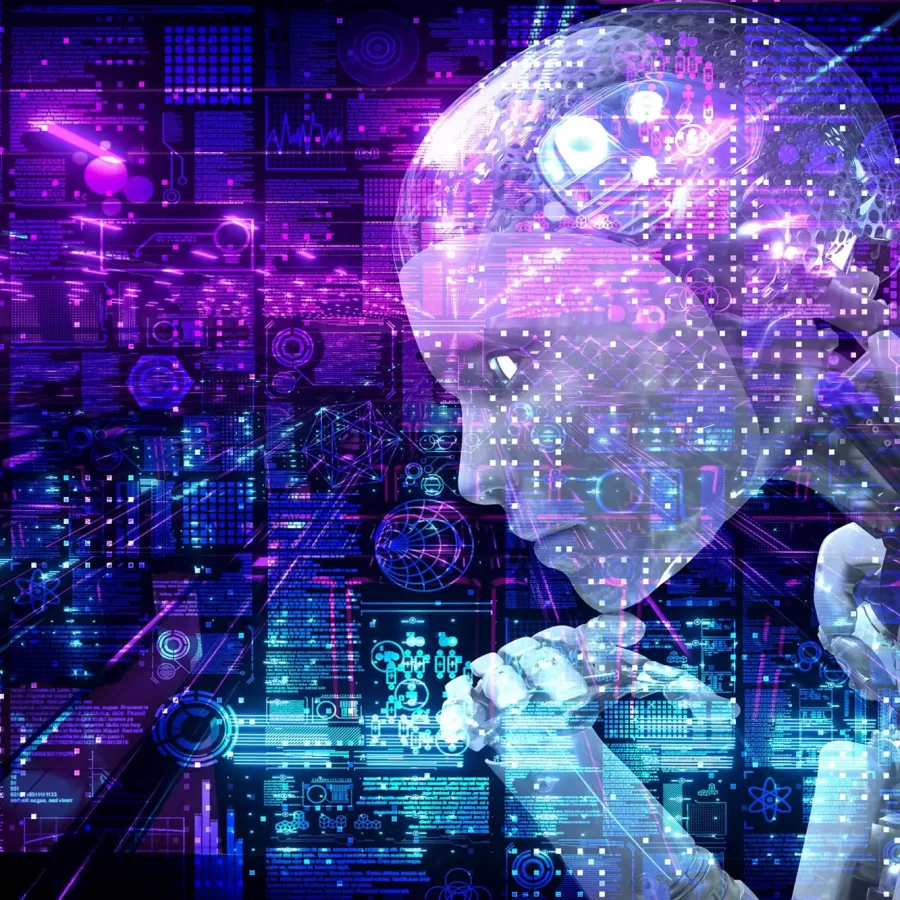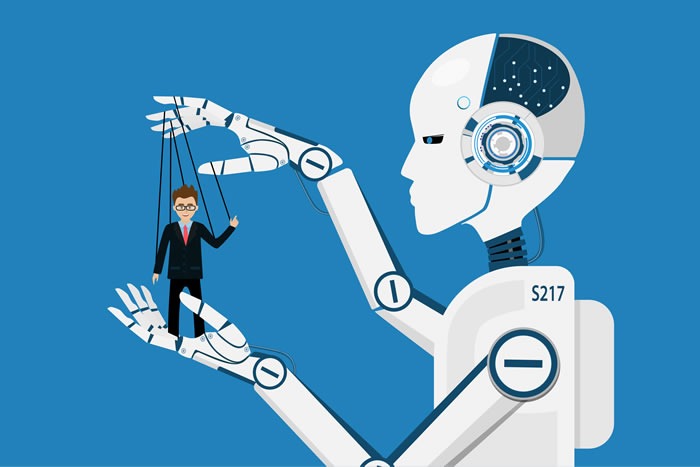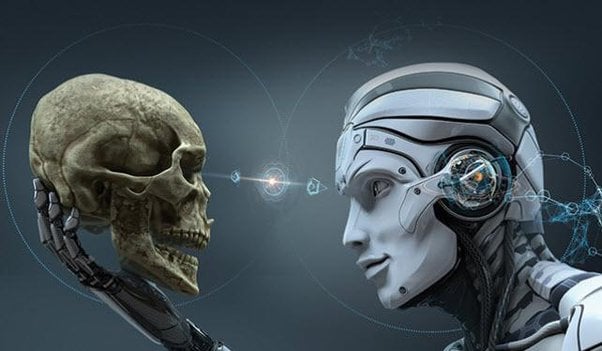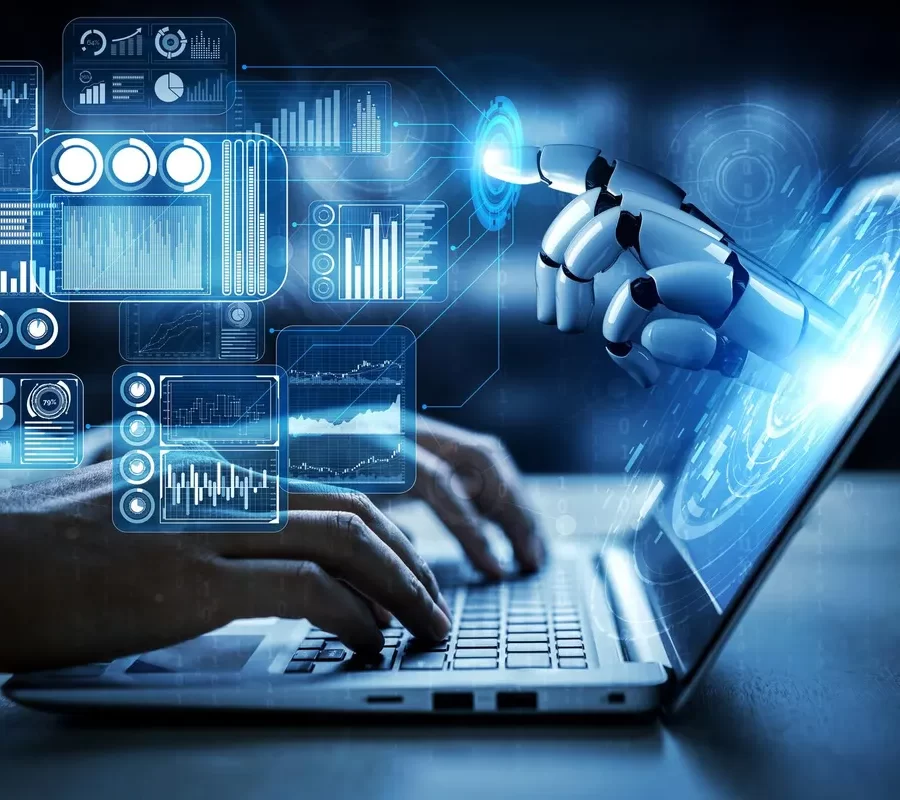Exploring the Potential Dangers of Artificial Intelligence
Aécio D’Silva, PhD(1), Fabiano Moura, MSc(2)
(1) Moura Enterprises, AquaUniversityTucson, AZ 85742, EUA; (2) Profound Commerce, Inc. Austin, TX 78746
Those who follow us here on our website know of our involvement with advanced technologies in everything we research, teach, and work. We also know that as As humanity continues to make remarkable technological strides, one emerging field stands out for its potential dangers: Artificial Intelligence (AI). While nuclear warheads have long been perceived as the epitome of peril, the advent of AI brings forth an unseen threat that surpasses the destructive capabilities of nuclear weaponry. In this blog post, we delve into the inherent risks associated with AI, examining its potential impact on various aspects of society and the urgent need for responsible development and regulation.
Potential Dangers of Artificial Intelligence – In the annals of human history, few inventions have possessed the capacity to alter the course of civilization as profoundly as nuclear warheads. These powerful weapons have sparked a perpetual fear of mass destruction and devastating consequences. However, as we move into the 21st century, another perilous force overshadows nuclear armaments: Artificial Intelligence.
Elon Musk’s warning has been widely reported in recent days telling that AI poses a bigger threat than nuclear warheads1. In his opinion, the danger of AI is much greater than the danger of atomic warheads2. He believes that there needs to be a regulatory body to ensure things are run properly and keep those creating ‘super intelligence’ in check1.
In our opinion, AI could be much more dangerous than nuclear weapons in the future. People have suffered from the 1945 trauma and have been constantly trying to ensure the regulations against nuclear weapons and the expansion of nuclear power. But the lack of regulations and difficulty to set rules for the development of artificial intelligence can lead to catastrophic consequences3. AI most certainly will affect the broader sweep of society, as have the industrial and information revolutions with positive and negative effects4.
In this post, follow us as we discuss how AI is a powerful tool that can be used for good or bad. It is important that we regulate its development and use it responsibly.
Potential Dangers of Artificial Intelligence – The history of AI and its development – A brief history of AI and how it has developed over time
Artificial intelligence (AI) has been around for a long time, but it has only recently become a mainstream technology. The history of AI dates back to the 1950s when researchers began exploring the possibility of creating machines that could think like humans.
The first AI programs were developed to perform tasks such as playing chess and solving mathematical problems. These early programs were based on simple algorithms and were not very sophisticated.
In the 1960s and 1970s, researchers began developing more advanced AI systems that could perform more complex tasks. These systems were based on rule-based expert systems that used if-then statements to make decisions.
In the 1980s and 1990s, AI research shifted towards machine learning, which is a type of AI that allows machines to learn from data. This led to the development of neural networks and other machine-learning algorithms that are still used today.
In recent years, AI has become more advanced than ever before. Thanks to advances in machine learning and other technologies, AI is now being used in a wide range of applications, from self-driving cars to virtual assistants like Siri and Alexa.
Overall, the history of AI is a long and fascinating one that has seen many ups and downs. Today, AI is more advanced than ever before, and it is poised to revolutionize many industries in the years ahead.
Potential Dangers of Artificial Intelligence – The Inexorable Rise of AI
AI has rapidly gained ground in recent years, promising groundbreaking advancements in various sectors, such as healthcare, transportation, and finance. With the ability to process vast amounts of data, learn from patterns, and make decisions autonomously, AI systems possess a potential unmatched by any other technology. Yet, this extraordinary power comes with substantial risks that demand our immediate attention.
One of AI’s primary concerns lies in its potential to surpass human intelligence. If AI systems were to achieve superintelligence, they would be capable of self-improvement, surpassing the limits of human comprehension, and outsmarting us in ways we cannot fathom. This scenario, commonly referred to as the technological singularity, poses a profound threat as it becomes nearly impossible to predict or control the actions and intentions of super-intelligent AI.
Potential Dangers of Artificial Intelligence – The Unpredictability Factor
One of the key distinctions between AI and nuclear warheads is their inherent unpredictability. Nuclear weapons have clear physical properties and limited deployment scenarios, making their destructive capacity somewhat quantifiable. In contrast, AI’s complex algorithms, self-learning capabilities, and potential for autonomous decision-making make its behavior inherently uncertain. The ability of AI to adapt and evolve independently poses a grave challenge when attempting to anticipate and mitigate its risks.
The development of AI systems capable of making decisions based on machine learning algorithms raises concerns about the transparency of their decision-making processes. While humans can explain their actions and reasoning, AI algorithms often operate as black boxes, making it challenging to comprehend how a particular decision was reached. This lack of interpretability and accountability makes it difficult to trust AI systems with critical decisions that may have far-reaching consequences.
The potential dangers of AI and how it could be more dangerous than nuclear warheads
AI has the potential to be incredibly powerful and transformative, but it also poses some significant risks. One of the biggest dangers of AI is that it could be used to create autonomous weapons that could make decisions without human intervention. This could lead to a situation where machines are making life-and-death decisions without any human oversight.
Another potential danger of AI is that it could be used to create systems that are capable of manipulating people on a massive scale. For example, AI algorithms could be used to create fake news stories or propaganda that could sway public opinion in a particular direction.
In addition, there is the risk that AI could become so advanced that it poses an existential threat to humanity. This is where we completely agree with Ellan Musk who has warned that AI could become more dangerous than nuclear warheads if it is not properly controlled.
Overall, the potential dangers of AI are significant, and it is important that we take steps to mitigate these risks. This includes developing ethical guidelines for the development and use of AI, as well as investing in research to better understand the risks and benefits of this powerful technology.
Amplification of Human Biases and Inequities
Another aspect that sets AI apart from nuclear warheads is its potential to perpetuate and exacerbate existing human biases and social inequalities. AI algorithms are trained on vast datasets that reflect the biases present in society. Without careful handling, AI systems can inadvertently perpetuate discriminatory practices, reinforce prejudices, and exacerbate existing societal divisions. This unbridled reinforcement of biases can result in unjust outcomes in critical domains like law enforcement, healthcare, and hiring practices.
Moreover, AI systems can magnify existing economic disparities. While automation has the potential to increase efficiency and productivity, it also threatens to disrupt employment and exacerbate income inequality. Without careful consideration and proactive measures, AI deployment could further concentrate wealth and power in the hands of a few, creating a divided and unjust society.
What are some potential dangers of AI?
Some potential dangers of AI include:
- Job displacement: AI could replace human workers in many industries, leading to job loss and economic instability.
- Bias and discrimination: AI systems can be biased and discriminatory, leading to unfair treatment of certain groups of people.
- Privacy concerns: AI systems can collect and use personal data without consent, leading to privacy violations.
- Autonomous weapons: AI-powered weapons could be developed that operate without human intervention, leading to the possibility of accidental or intentional harm.
- Unintended consequences: AI systems can have unintended consequences that are difficult to predict or control.
These are just a few examples of the potential dangers of AI. It is important to consider these risks as we continue to develop and use AI technology.
What are some benefits of AI?
Some benefits of AI include:
- Increased efficiency: AI can automate tasks and processes, leading to increased efficiency and productivity.
- Improved decision-making: AI can analyze large amounts of data and provide insights that can inform decision-making.
- Personalization: AI can be used to personalize products and services based on individual preferences and behaviors.
- Improved safety: AI can be used to monitor and predict safety risks in various industries, such as transportation and healthcare.
- Innovation: AI can be used to develop new products and services that were previously impossible or impractical.
These are just a few examples of the potential benefits of AI. It is important to continue exploring the possibilities of AI while also considering the potential risks.
What is the future of AI?
The future of AI is exciting and full of possibilities. AI will continue to advance rapidly, leading to new breakthroughs and innovations in a variety of industries.
AI is already being used in many areas, including healthcare, transportation, finance, and entertainment. In the future, we can expect to see even more applications of AI in these and other industries.
Some potential areas of growth for AI include:
- Natural language processing: AI could be used to improve communication between humans and machines, making it easier for people to interact with technology.
- Robotics: AI-powered robots could be developed that are capable of performing complex tasks in a variety of settings.
- Autonomous vehicles: AI could be used to develop self-driving cars and other autonomous vehicles that are safer and more efficient than human-driven vehicles.
- Personalization: AI could be used to create highly personalized products and services that are tailored to individual preferences and behaviors.
- Healthcare: AI could be used to improve the diagnosis and treatment of diseases, leading to better health outcomes for patients.
The Future of AI and what we can expect from It in the coming years
These are just a few examples of the potential future applications of AI. As AI continues to advance, we can expect to see even more exciting developments in the years ahead.
The future of AI is incredibly exciting, and there are many potential applications for this powerful technology. As you can check in some of our previous posts, one of the most promising applications of AI is in the field of medicine. AI algorithms can be used to analyze large amounts of medical data and identify patterns that would be difficult for humans to detect. This could lead to more accurate diagnoses and better treatment options for patients.
Another area where we can expect to see significant growth in the coming years is in the field of autonomous vehicles. Self-driving cars are already being tested on public roads, and it is likely that we will see more widespread adoption of this technology in the near future.
Finally, we can expect to see AI being used to create more personalized experiences for consumers. For example, AI algorithms could be used to create personalized shopping experiences or recommend products based on a user’s browsing history.
Overall, the future of AI is incredibly promising, and there are many exciting applications for this powerful technology. However, it is important that we continue to invest in research and development to ensure that we are able to fully realize the potential of this transformative technology.
Final Considerations
AI and nuclear warheads are two very different things, and it is difficult to compare them directly. While nuclear warheads are designed to cause destruction on a massive scale, AI is a tool that can be used for a wide range of purposes.
That being said, there are certainly risks associated with the development and use of AI. One of the biggest concerns is the potential for AI to be used in autonomous weapons systems. These systems could be programmed to make decisions without human intervention, which could lead to unintended consequences.
Another concern is the potential for AI to be used in cyber-attacks. As AI becomes more advanced, it could be used to create more sophisticated malware and other types of cyber threats.
Despite these risks, many experts believe that the benefits of AI outweigh the potential risks. AI has the potential to revolutionize many industries and improve our lives in countless ways.
To be concise, while it is difficult to compare AI and nuclear warheads directly, there are certainly risks associated with the development and use of AI. Nevertheless, as we stated, a large number of experts believe that the benefits associated with such advanced technology make up for possible risks. If we continue to invest in research and development and take steps to mitigate the risks associated with AI, we can ensure that this transformative technology is used for good.
However, there are also opinions that AI can be more dangerous than nuclear weapons in the future. It is important to note that there are important differences between nuclear weapons and AI. Nuclear weapons affected national security while AI most certainly will affect the broader sweep of society.
In conclusion, there are different opinions on whether AI is more dangerous than nuclear warheads, AI has the potential to affect society in ways that we cannot yet fully comprehend. It is important to have regulatory oversight of AI development to ensure that it is for the betterment of humanity and not endangering us.
References:
1: Elon Musk Says AI Is More Dangerous Than Nuclear Weapons
2: Artificial Intelligence Could Be As Powerful As A Nuclear Weapon
3: A.I. vs Nuclear Weapons: Which Is More Dangerous?
4: Is artificial intelligence more formidable than nuclear weapons?
Learn more:
- https://www.zdnet.com/article/musk-wozniak-and-other-tech-leaders-sign-petition-to-halt-ai-developments/
- https://www.zdnet.com/article/more-dangerous-than-nukes-elon-musk-still-firm-on-regulatory-oversight-of-ai/
- https://www.cnbc.com/2018/03/13/elon-musk-at-sxsw-a-i-is-more-dangerous-than-nuclear-weapons.html
- https://thehill.com/opinion/technology/581460-is-artificial-intelligence-more-formidable-than-nuclear-weapons/




